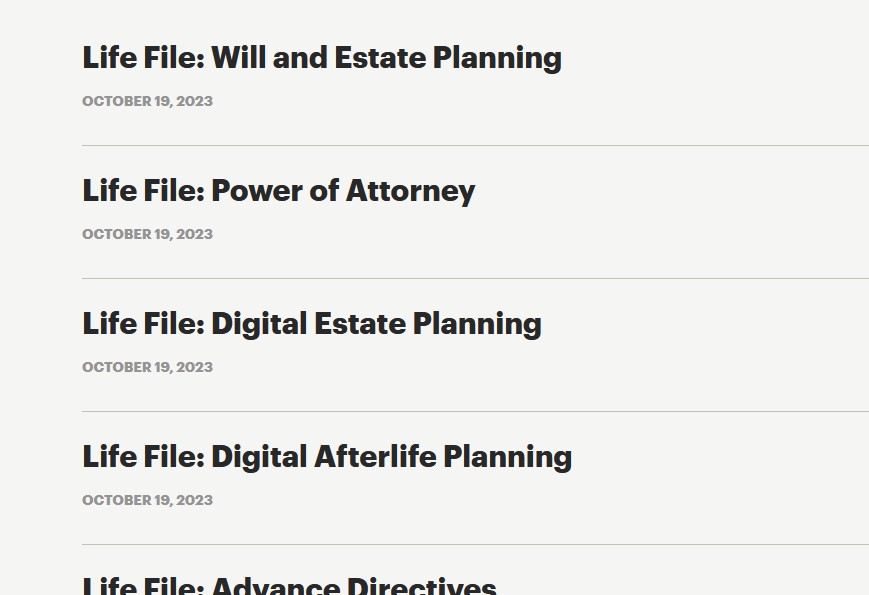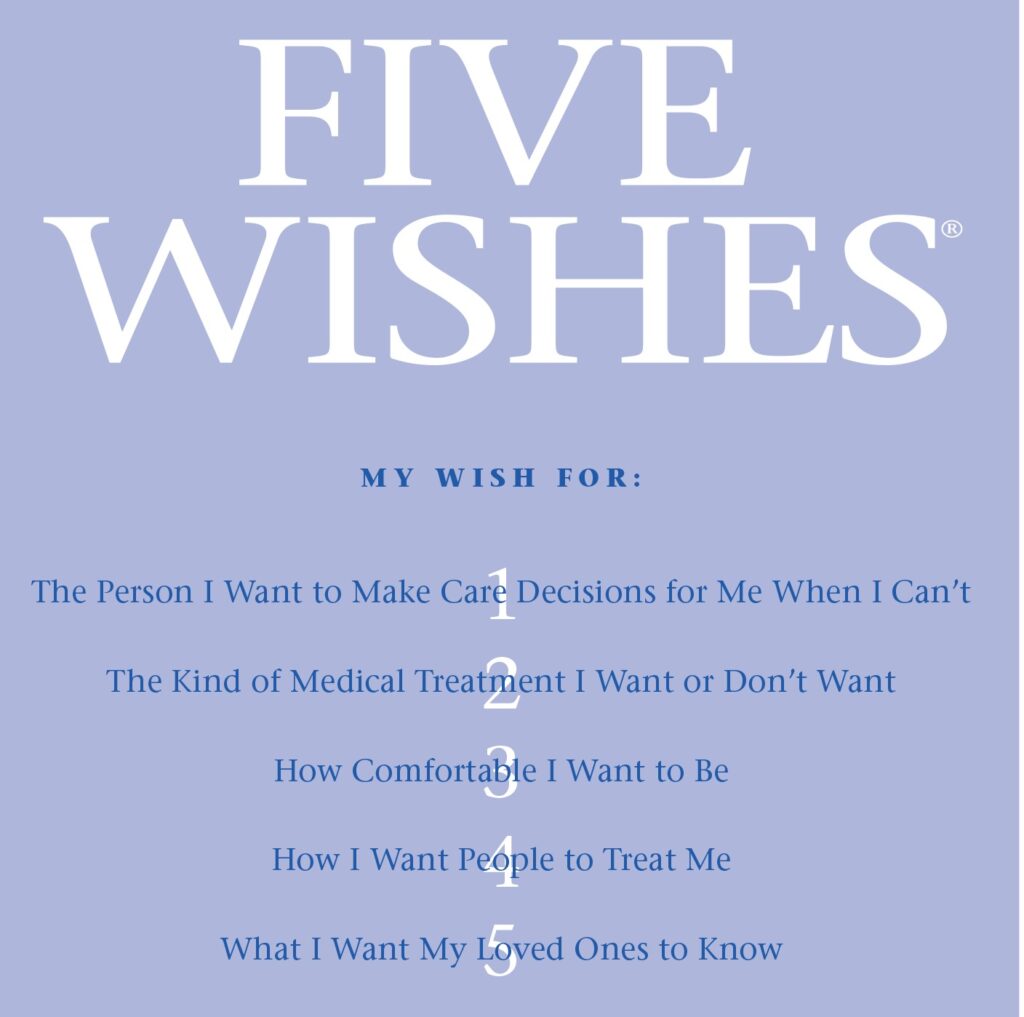Planning
The Planning Project
Planning is complex, requires decisions, takes time, and can be overwhelming.
Tips to managing it all:
- You do not have to (and proably cannot) do everything all at once.
- You MUST tell someone where you intend to keep things, even if you aren’t “done” with this project.
- The Your Choices part of this website should give you the critical answers you need to choose what you want your survivors to do after you are gone.
Understand that:
- The main reason to do this is to help your survivors do what they need to do and, hopefully, preserve more of what you leave behind for their benefit.
- “Planning” is not the same as “paying.” Before paying for anything, see our Pricing and Paying set of pages. Be especially mindful of the warnings in the Pre-paying page.
- Most likely, you will have to come back to this project periodically because something changed. Don’t wait for things to “settle down.” Any plan is better than none for your survivors.
- There are no national planning-related laws, every state rules in its own way, but there are commonalities.
- You have way more things to think about than you ever imagined. Just keep taking the next step and you will get far.
Planning components
The following is an overview, just to give you an idea of the total scope of what a “Planning Project” is.
The planning documents are often broadly grouped into these categories.
Advance Directive for Health Care
- This is a single, document you must sign. It is mostly about your health care wishes if you are incapacitated. However, it can touch on after-death questions, such as if you would like to donate your organs, even which organs.
- There can be overlap with wishes you express in other documents, which might conflict if you are not careful.
Legal documents: Will, Trust, Powers of Attorney.
- Before you can work on any of these, you need to get permission from the people you want to name as taking responsibility for decisions or execution of your desires.
- If you are going to name items in your legal docs, such as who gets your car, then you may have to start with your possessions part.
- This part can be VERY complex. For example, naming beneficiaries here can conflict with your banking a brokerage institutions.
- While you can find free versions of these documents on the web, we encourage you to recognize if you have a more complex situation, such as children in your care and, if so, seek out legal advice.
Your physical possessions: real estate, vehicles, pets, insured items, household items.
- Some items may require a set of documents, such has associated insurance policies, titles, loan docs, and so on.
- Physical items may require maintenance or special instructions, or access instructions, like where are the keys?
- Pet instructions need to include, at a minimum, their food and feeding care and the vet that has their records.
Your digital assets: online access to asset accounts, airline miles, etc.
- Passwords. Email. Two-factor authentication devices.
Your Body and Legacy
- Even if you don’t care what happens to you after you are gone, your survivors are still going to have to make these decisions. If your goal is to make their life easier, then say something rather than nothing.
- Your digital self will live on unless and until someone does something. It is easier if you tell your survivors what accounts you have and, better, what you want done.
- The Your Choices part of this website should give you all the answers you need to choose what you want your survivors to do after you are gone.

Death with Dignity's "Life File"
FREE. This non-profit has a series of pages they call The Life File that is an excellent planning an organizing source.
You can also sign up for their email system that will periodically send you a nudge to work on some part of your planning project.
Death with Dignity is 501(c)(3) organization that provides the public with information on a broad range of end-of-life topics. They are most interested in passing right-to-die laws.

Five Wishes' Advance Care Directive
The Advance Health Care Directive mostly applies to your care when you are unable to communicate for yourself. It can ask questions that you don’t know how to answer. For extra help in thinking through all of that, we feel Five Wishes does a very good job.
Five Wishes has been around for 40 years. They have created AHCDs that are legal in all states, in many languages, and versions for children and teens with terminal illnesses.
$5. They do charge a nominal fee and have packages available for families.
